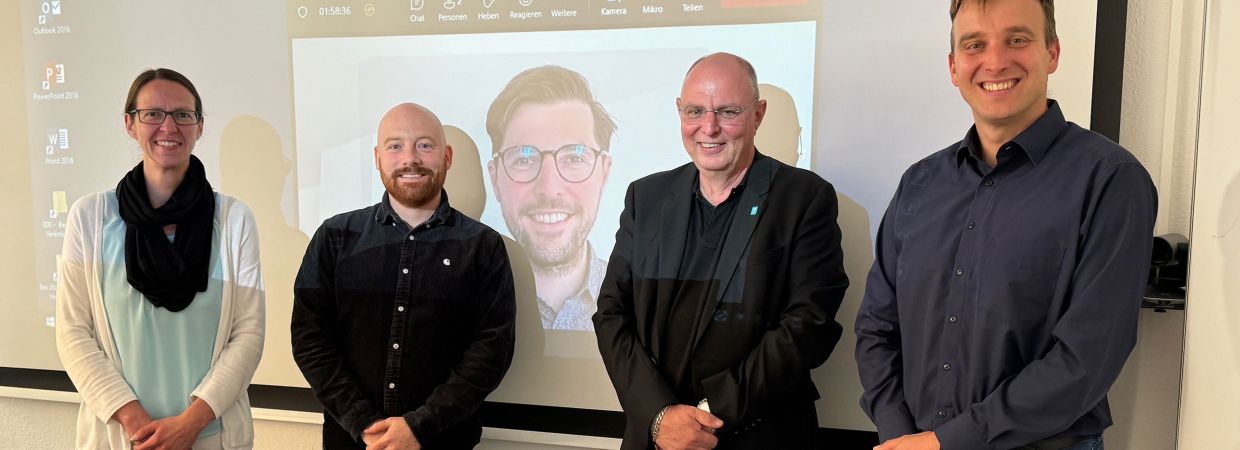english – Sustainable procurement: Bochum shows how to do it
How can we make the award sustainable? The city of Bochum has had concrete experiences with tenders for sewer rehabilitation. At a meeting with the RSV, it became clear that this knowledge should be shared.
"The city council has decided that in the future, Bochum's sewer contracts must be awarded on the basis of sustainability," says Frank Großklags, head of the drainage department at the Bochum City Civil Engineering Office. Like all other municipalities, however, the city has to contend with a chronic shortage of personnel. “But this must not lead to a situation where the issue of sustainability in sewer rehabilitation is not pursued further,” says Großklags.
Two tools have been developed – one for planning to compare the procedures for the respective project, and another for the tender and to compare the offers. "We have a huge asset in front of us. The drainage system is one of the largest parts of our fixed assets and thus we have a great responsibility for the future. To do this, we need tools that help us to plan and tender sustainably and to evaluate the offers received – and with as little additional effort as possible," explains Großklags.
The first tender, in which companies had to enter relevant information into the tool, unfortunately failed at first attempt. Großklags: "There wasn't a single bidder. We have learned from this and made improvements. We have realised that in a process like this, you have to get the companies and industry more involved." The second attempt was successful after the city had better explained and simplified the tool.
Cooperation with the RSV
With its commitment, the city of Bochum is hitting the mark with RSV. At the meeting of the RSV sustainability working group, the presentation by Phil Olbrisch, who is responsible for tool development in the team, met with enthusiasm from network operators and companies. This prompted the RSV board to quickly arrange a meeting with the city and initiate a cooperation: "Everyone is talking about the fact that we should act sustainably. At the moment, the solution is often that you, as a bidder, are supposed to answer the question of whether you work sustainably. Who checks that if I answer "yes"?" is how RSV board member Benedikt Stentrup summarises the situation. "It's not at all that companies are afraid of investing in sustainability – quite the opposite! But it is important that the effort pays off, and that we don't burden ourselves with bureaucracy."
At the joint meeting, it was agreed to take up the work of the city of Bochum, to discuss it with other municipalities and, if necessary, to develop it further. "In view of the shortage of personnel in Germany, we cannot afford isolated solutions. We need tender templates that can be used by everyone," says Benedikt Stentrup. Frank Großklags agrees: "We don't want to be a “Gallic village” going our own way. In the end, there has to be something that small and large municipalities throughout Germany can work with and that is also accepted by companies."
RSV plans to address local authorities
The way in which the cooperation will be continued and how companies and municipalities are to be approached on a broad scale is the topic of the next RSV Sustainability Working Group meeting. "Finally, it is also important to see how far other municipalities have come in the development of tools and sustainable tenders. Learning from each other, exchanging ideas and jointly advancing things – that is what association work is ultimately for," said Working Group chairman Roland Fischer, getting to the heart of the matter.
Caption: Learning from each other in the area of sustainability: RSV and the city of Bochum agree to co-operate. From left to right: Bettina Müller (city of Bochum), Phil Olbrisch (city of Bochum), Roland Fischer (RSV), Frank Großklags (city of Bochum), Benedikt Stentrup (RSV).
